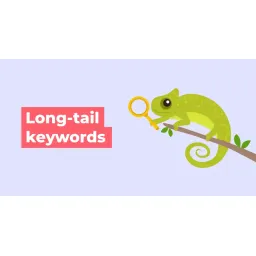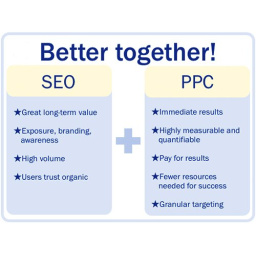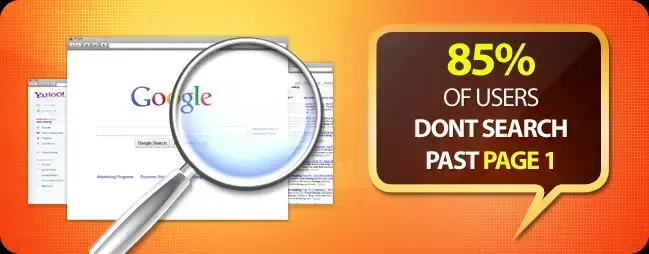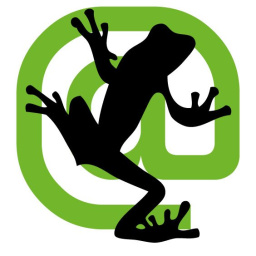Mastering Keyword Research for SEO
by Abbs
Posted on 2023-05-17 08:45:19

Keyword research study is a critical component of on-page SEO. It includes recognizing the keywords and expressions that individuals utilize to look for information related to your company, products, or services. By targeting these keywords in your content, you can improve your website's significance and visibility in search engine result.
Why Keyword Research Matters
Keyword research is important due to the fact that it assists you understand what your target audience is searching for and how they are searching for it. By identifying the most relevant and high-volume keywords and phrases, you can create content that meets the needs of your target market and brings in more certified traffic to your site.
TIP:Say goodbye to thin content! Beef up your pages with valuable information and relevant keywords.
Keyword research can also help you identify gaps in your content and uncover brand-new topics and ideas to check out. By analyzing the keywords that your rivals are targeting, you can gain insights into their content strategy and find methods to distinguish yourself in the market.
How to Conduct Keyword Research Study
There are a number of methods and tools you can utilize to conduct keyword research study, including:
-
Brainstorming: Start by conceptualizing a list of keywords and expressions that you think pertain to your company, items, or services. Ask yourself what questions your target audience might be asking and what words they might utilize to explain their requirements.
![seo]()
-
Utilizing Google Autocomplete: Type your preliminary keywords into the Google search bar and see what recommendations show up in the autocomplete dropdown. These ideas are based upon the most common searches associated with your keyword.
-
Using Keyword Research Study Tools: There are numerous tools readily available to assist you carry out keyword research, consisting of Google Keyword Coordinator, Ahrefs, SEMrush, and Moz. These tools provide data on the search volume, competitors, and importance of different keywords.
When conducting keyword research study, it is important to focus on relevance, search volume, and competitors. You wish to target keywords that pertain to your organization and have a high search volume, but that are not too competitive.
How to Use Keywords in Your Content
As soon as you have actually determined the keywords and expressions you wish to target, it's important to utilize them tactically in your content. Here are some best practices for using keywords in your content:
TIP:Socialize your content! Encourage social sharing to increase visibility and drive more traffic.
-
Usage keywords in your page titles and meta descriptions to accurately describe the content of your page and attract users to click through to your site.
-
Use keywords in your headings (H1, H2, etc) to structure your content and make it much easier to read and understand.
-
Use keywords throughout your content, however avoid "keyword stuffing" by using them naturally and in context.
-
Use variations of your keywords to target long-tail searches and provide more specific information to your target market.
-
Usage keywords in your image alt tags and file names to make them more discoverable in image searches.
By following these best practices, you can improve your website's importance and visibility in search results and attract more competent traffic to your site.
Be sure to read our first article on the introduction to seo and why seo is important
Crafting Efficient Page Titles
Crafting effective page titles is an important element of on-page SEO. Page titles are the very first thing users see in search results, and they play a crucial function in identifying whether users click through to your site or not. In this chapter, we'll talk about best practices for crafting efficient page titles that accurately describe the content of your page and entice users to click through to your site.
Why Page Titles Matter
Page titles are essential for a number of factors:
-
They tell users and online search engine what your page has to do with: The page title is the first thing users and online search engine see when they encounter your page. It ought to precisely describe the content of your page and consist of relevant keywords.
-
They help your page rank in search results: Search engines use page titles to determine the relevance and quality of your page. Consisting of relevant keywords in your page title can assist your page rank higher in search results.
-
They attract users to click through to your site: A well-crafted page title can entice users to click through to your site and explore your content.
Best Practices for when crafting page titles, it is necessary to follow these finest practices:
-
Keep them succinct: Page titles need to disappear than 60 characters long, including spaces. This is the optimum length that will display in search results, and longer titles might be cut off.
TIP:Speed up your success with caching! Utilize browser caching to enhance user experience.
-
Include relevant keywords: Page titles should include relevant keywords that precisely describe the content of your page. Prevent keyword stuffing, and just consist of keywords that relate to your content.
-
Be distinct: Each page on your site need to have a special page title that accurately explains the content of the page. Prevent utilizing replicate page titles, as this can puzzle users and search engines.
-
Think about the user: When crafting page titles, consider what will attract users to click through to your site. Usage language that is clear and compelling, and think about using action-oriented language, such as "Learn more" or "Discover".
KeyTakeaways
- Page titles are essential for informing users and search engines what your page is about, assisting your page rank in search engine result, and enticing users to click through to your site.
- Page titles must be concise, include relevant keywords, use your brand, be descriptive, be special, and consider the user.
- Following these finest practices can help improve your page's significance and visibility in search results page and attract more qualified traffic to your site.
- Keyword research study is a vital component of on-page SEO.
- Keyword research study assists you understand what your target audience is looking for and how they are looking for it.
- There are a number of approaches and tools you can use to conduct keyword research, including brainstorming, utilizing Google Autocomplete, and using keyword research study tools.
- When using keywords in your content, it's important to utilize them tactically and naturally.
- By targeting the best keywords and utilizing them efficiently in your content, you can improve your website's relevance and visibility in search results and draw in more certified traffic to your site.
Extra Resources
- Google Search Console Help: https://support.google.com/webmasters/answer/35624?hl=en
- Moz: https://moz.com/learn/seo/title-tag
 What Are Long-Tail Keywords and Why Should You Utilize Them?
In the ever-evolving world of Seo (SEO
What Are Long-Tail Keywords and Why Should You Utilize Them?
In the ever-evolving world of Seo (SEO
 Making Use Of Paid Advertising for SEO
While organic search traffic is essential for any website, i
Making Use Of Paid Advertising for SEO
While organic search traffic is essential for any website, i
 Using Influencer Marketing for SEO
Influencer marketing has actually become a popular strategy for
Using Influencer Marketing for SEO
Influencer marketing has actually become a popular strategy for



